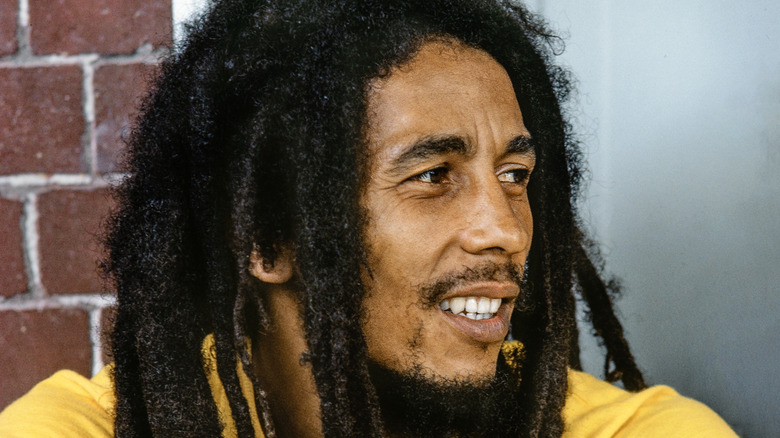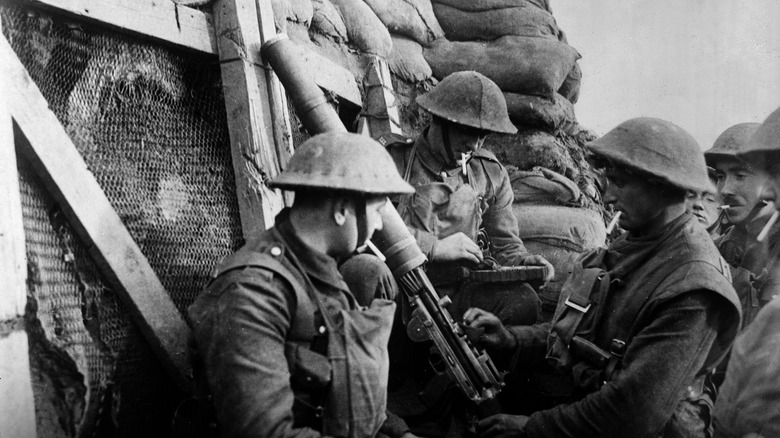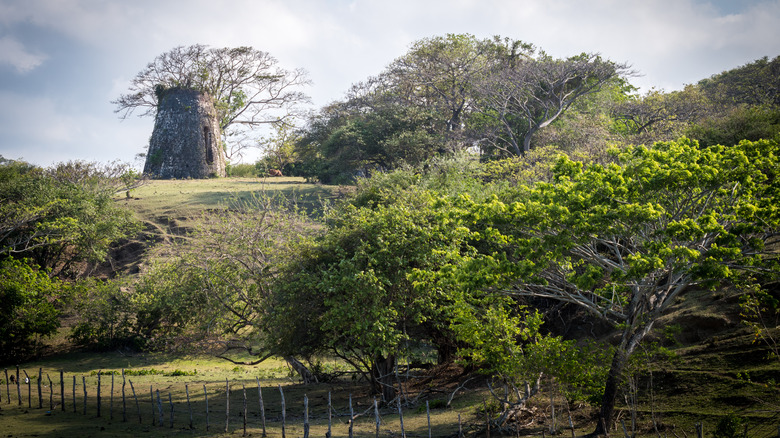Who Was Bob Marley's Father, Norval Marley?
Even before his early and tragic death to cancer in 1981, Bob Marley had already become a legend. Rising up from one of Kingston, Jamaica's roughest neighborhoods, Trench Town, Marley became an icon of culture, music, spirituality, and love, and bound all four together in himself anytime he took the stage. Marley's wife Rita said on American Songwriter of her husband's final performance, "My strongest memory was of the audience, watching them observe his movement. Bob's connection to his music was spirit and power. He was such a force, and the audience felt his transformational liveliness."
With such a pedigree, it'd be easy to build on Marley's mythology and envision a sort of mystical birth and parentage for the man. Surely he must have been suffused with musical energy from an early age, people might think. Surely his parents must be extraordinary people themselves, right? Well, things are a bit more complicated than that, and not at all what the reader might expect.
First off, Bob Marley was biracial — his mother was Black and his father was white. His father, Norval Marley, was an English soldier in World War I. Sometime after the war, as the BBC explains, he moved to Jamaica and became the supervisor of a plantation. It's there that he met Bob Marley's mother, Cedella Malcom, when he was 60 and she was 17, per Find a Grave. When she turned 18 in 1944 they got married. Nesta Robert "Bob" Marley was born the next year.
A soldier in World War I
While we don't know a lot of personal things about Norval Marley, not even what kind of music he liked, we at least have his military service record. As the BBC cites, much of the record contains biographical and biometric data. He was born in Crowborough, East Sussex, England, for instance. Sites like Find a Grave state that he might have had Jewish ancestry going back to Syria.
The BBC says Marley enlisted in Liverpool in August 1916 after arriving back to England from Cuba after having been in the U.S. His job, it seems, was "construction engineer." He was also 5 feet, 5 inches tall, and a scant 124 pounds. And yet, he was deemed fit enough to fight, and trained along with 20,000 other men at a giant training camp at Park Hall, Shropshire, England. But, he never wound up being deployed.
Per the BBC, medical reports described Marley as a "neurotic type of man." Marley claimed to have urinary incontinence, meaning that he wet his bed. By September 1916 — a mere month after enlisting — he complained of feeling sick and underwent some operation, but we've got no information on the purpose of the operation or if there was anything actually wrong with him. He wound up being sent to a military hospital and serving in the Labour Corps, a support battalion composed of people not healthy enough to serve on the frontlines.
absentee father and plantation supervisor
To Bob Marley, his father "didn't exist," as the BBC quotes Marley's ex-girlfriend, Esther Anderson. Shortly after Marley's birth, his father vanished. When Marley was 10, Norval Marley died. All Bob had of Norval was one, grainy, black-and-white photograph of him in military gear and sitting on a horse. To reggae's greatest hero, his father was merely "a white man on a horse" — that's it. Marley didn't talk about him very often, but if he did it was always in "scathing terms" for having left his mother.
While we don't know the exact circumstances surrounding Norval Marley's disappearance from his son's life, or precisely how he and Marley's mother met, we do know that they met on the Jamaican plantation where Norval worked. The word "plantation," and the racial dynamic between Marley's father and mother, may bring to mind images of slavery. Thankfully, this wasn't the case, as the Embassy of Jamaica says that the nation outlawed slavery over 100 years before Bob Marley was born. However, the BBC says that Norval was a supervisor of some kind on the unnamed plantation where he worked, and as stated earlier, Marley's mother Cedella Malcom was very young when they met.
Besides these facts, the BBC mentions certain unfounded tales circulating around Norval's time in the military — like him being a captain in the Royal Marines. It's possible that Norval himself made such stories up.


